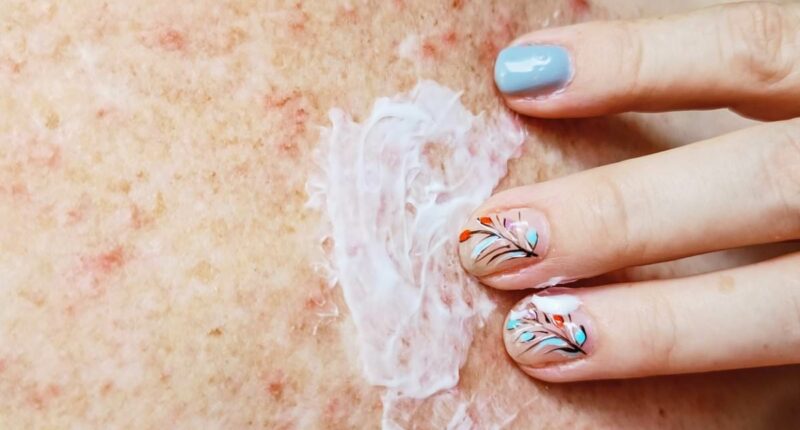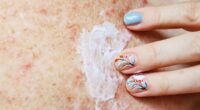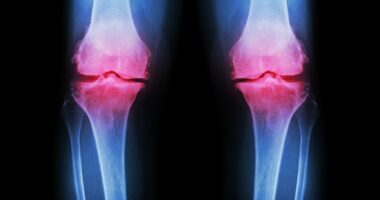Share this @internewscast.com
Thousands of individuals grappling with hand eczema may find relief from their distressing symptoms as the NHS has given the nod to a groundbreaking new therapy.
This innovative cream, applied twice daily, promises relief for adults battling the inflammatory condition that results in uncomfortable, itchy, cracked, and dry skin patches.
Endorsed by the UK’s Medicines and Healthcare products Regulatory Agency (MHRA) last year, research indicates that delgocitinib can eliminate rashes in nearly one-third of patients, in contrast to only seven percent who experience relief with conventional treatments.
Marketed under the name Anzupgo, this cream alleviates symptoms by targeting Janus kinases, proteins in the body responsible for inflammation.
With the recent approval from the National Institute for Health and Care Excellence (NICE), this treatment is now available for prescription in England.
NICE remarked that the cream “has the potential to transform the lives of those suffering from this debilitating condition and could simultaneously result in significant savings for the NHS.”
It will be offered as an option for those with ‘moderate to severe chronic hand eczema’ and is applied at home to the affected areas on the hands and wrists.
But delgocitinib should be offered to people with limited options, for example when steroid creams have not worked or are not suitable, the watchdog said.

Sold under the brand name Anzupgo, the cream soothes symptoms by targeting proteins, known as Janus kinases, in the body that cause inflammation
Current treatments for these patients include ultraviolet light therapy, requiring regular hospital visits, or retinoid medication, which is taken as capsules.
But this medication can cause side effects such as dizziness, dry eyes, dry mouth, alopecia, anaemia and conjunctivitis.
Delgocitinib was also approved for use in the EU last year.
It followed the publication of two studies involving 960 adults with moderate to severe chronic hand eczema, that found it was more effective than a placebo, or dummy, cream at reducing symptoms.
Results showed that most, or all, of the chronic hand eczema had cleared up in around 20 per cent of patients treated with the cream in the first study compared with around 10 per cent using placebo.
In the second study, these figures were 29 per cent for patients treated with Delgocitinib and around 7 per cent for patients using placebo.
Delgocitinib will be available on the NHS within 90 days, NICE said.
Eczema is a group of inflammatory skin conditions that can affect up to 25 per cent of the population.

The new treatment is set to be available for prescription in England for more than 62,000 people, after NHS spending watchdog NICE gave it the green light (stock image of eczema)
The condition can intensify to such an extent it becomes debilitating, with inflamed skin all over the body.
Sufferers may have to endure sensations of burning or have to wrap affected areas in bandages. It can also lead to stress and depression.
It can also be a challenge for people who work outdoors, or in jobs in healthcare that require frequent handwashing.
At least one in ten children will have eczema at some point but they will typically grow out of it as their immune system develops.
It is believed to occur in people with a common genetic mutation that leads to very dry skin.
Flare-ups of symptoms can also be linked to allergies or triggered by certain soaps or foods.
















